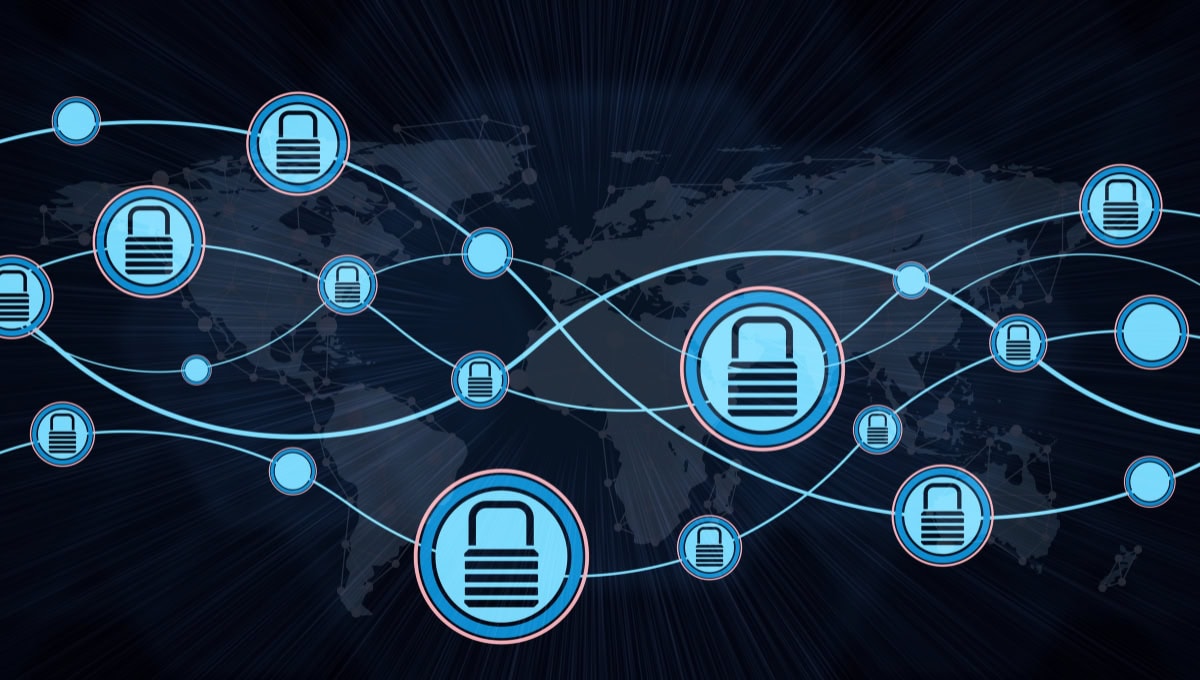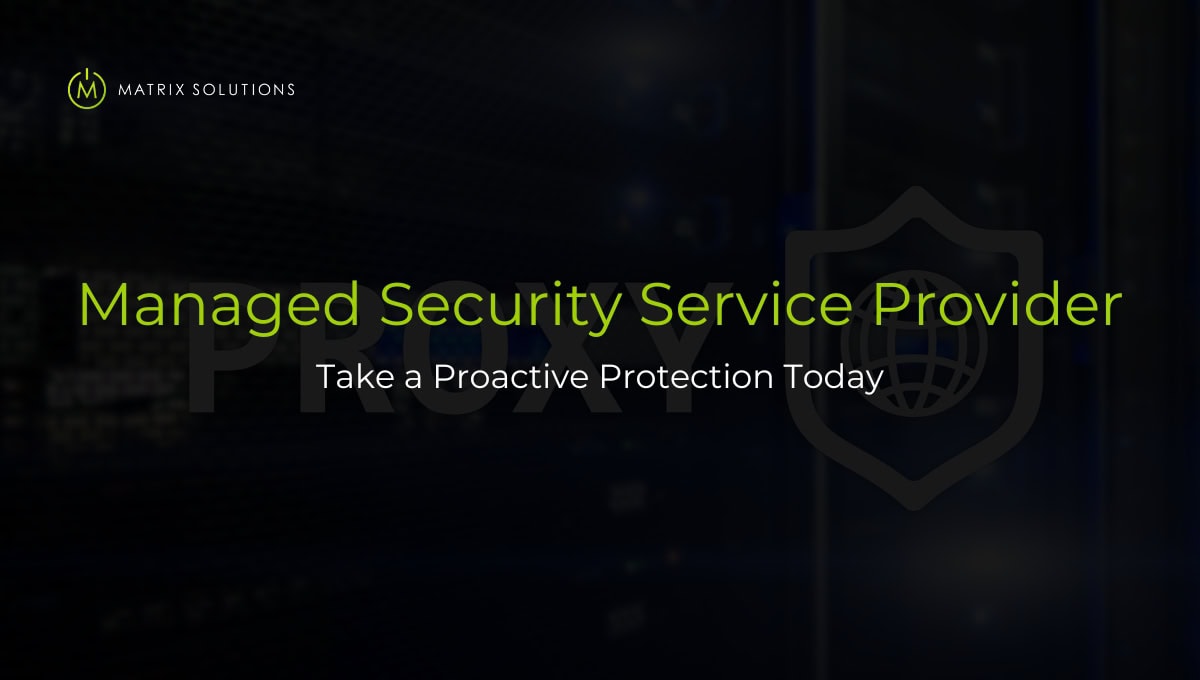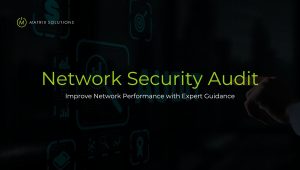As cyber threats become more advanced, businesses face increasing pressure to protect their digital systems. With the global cost of cybercrime expected to hit $10.5 trillion annually by 2025, strong cybersecurity has never been more important.
Managed Security Service Providers (MSSPs) help businesses stay secure by offering continuous monitoring, advanced threat detection, and tailored security solutions. By outsourcing their cybersecurity needs, businesses can access expert protection without the cost of building an in-house team.
What is a Managed Security Service Provider?

Securing digital infrastructure has become more challenging as businesses face increasingly complex cyber threats. Managed Security Service Providers (MSSPs) offers businesses specialised expertise and resources to stay ahead of potential risks.
Let’s explore how MSSPs act as a reliable shield, safeguarding your business in an increasingly dynamic and challenging environment.
Definition and Purpose
A Managed Security Service Provider (MSSP) is a third-party company that offers comprehensive cybersecurity services to protect businesses from digital threats. Their primary purpose is to monitor, detect, and respond to security incidents, ensuring the safety of networks, systems, and data.
Key Features of MSSPs
MSSPs offer a range of features designed to protect businesses from evolving cyber threats. Key features include:
- 24/7 Monitoring: Continuous surveillance to detect and address threats in real time.
- Incident Response: Rapid action to minimise damage and restore operations after a breach.
- Compliance Management: Ensuring adherence to industry regulations and security standards.
- Advanced Tools Integration: Leveraging AI and automation for faster threat detection and response.
- Proactive Threat Detection: Identifying and addressing vulnerabilities before they become issues.
These features combine to provide comprehensive, reliable security for businesses.
Core Services Offered by MSSPs
MSSPs provide essential services to safeguard businesses from types of cyber attack, using advanced tools and expert strategies to ensure continuous protection. Here are the core services they offer:
Threat Detection and Incident Response
MSSPs use tools like SIEM (Security Information and Event Management) to monitor systems in real time, detecting threats like malware or unusual activity. When a threat is identified, MSSPs respond quickly to neutralise it, minimising potential damage.
Vulnerability Management
MSSPs perform regular vulnerability assessments to identify weaknesses in your systems, such as outdated software or misconfigurations. They provide timely updates and patches to close these security gaps and protect your network.
Security Information and Event Management (SIEM)
SIEM platforms aggregate and analyse security data from across your network, allowing you to detect early signs of threats. This proactive monitoring helps prioritise and address the most critical security issues quickly.
Cloud Security Management
MSSPs secure your cloud-based assets and hybrid environments, protecting sensitive data and applications from cyber threats. They implement consistent security policies across cloud and on-premise systems, offering comprehensive protection.
Why MSSPs Are a Game-Changer for Small and Medium Businesses
Cybersecurity can feel daunting and expensive for small and medium businesses (SMBs). However, MSSPs provide a powerful solution that brings enterprise-level security within reach for smaller organisations. Here’s how they make a difference for SMBs:
Affordable Solutions for Limited Budgets
MSSPs offer cost-effective cybersecurity solutions that allow SMBs to access enterprise-grade protection without the hefty price tag. By outsourcing security services, SMBs can avoid the costs of building an in-house team and investing in expensive infrastructure. MSSPs provide affordable, scalable options that fit within smaller budgets while still delivering top-tier security.
Tailored Services for SMB Needs
MSSPs understand that each business has unique challenges and goals. That’s why they customise security solutions to meet the specific needs of SMBs. Whether protecting sensitive customer data, ensuring regulatory compliance, or safeguarding cloud-based assets, MSSPs tailor their services to align with the business’s priorities, offering a personalised approach to cybersecurity.
Scaling Cybersecurity as You Grow
As your business expands, your security needs evolve. MSSPs are equipped to scale their services alongside your growth. Whether adding new users, expanding to new locations, or adopting new technologies, MSSPs can adapt their strategies to ensure your cybersecurity remains strong and effective, no matter how big your business gets.
Advantages of Using MSSPs
Partnering with an MSSP offers numerous benefits for businesses seeking robust, cost-effective cybersecurity solutions. Here are some of the key advantages:
Cost Efficiency
Outsourcing cybersecurity to an MSSP eliminates the need to hire and maintain an in-house security team. Without the costs of recruitment, training, and technology investments, SMBs can access enterprise-level security at a fraction of the cost.
Access to Expertise
MSSPs offer deep industry expertise and provide access to a team of highly skilled cybersecurity professionals. With their experience and knowledge, they can stay ahead of evolving threats, ensuring your business is protected by the best in the field.
Advanced Threat Intelligence
MSSPs offer proactive threat intelligence, identifying potential risks before they turn into real attacks. By monitoring global cyber trends and using advanced tools, they can spot emerging threats, helping businesses prevent attacks before they happen.
Challenges of Relying on Managed Security Service Providers
While MSSPs offer many advantages, there are also some challenges to consider. Here are a few potential drawbacks of relying on a third-party provider for your cybersecurity needs:
Over-Reliance Risks
Relying too heavily on an MSSP for critical security decisions can lead to risks. Over-dependence on a third-party provider may reduce an organisation’s internal awareness and control over its security practices.
Integration Complexity
Integrating MSSP solutions with your existing IT systems can be challenging. Your infrastructure, software, and processes may not always align perfectly with the MSSP’s tools and protocols. This can lead to compatibility issues and delays.
Provider Accountability
One challenge of relying on an MSSP is ensuring they take full responsibility for security failures or breaches. Without clear service level agreements (SLAs) outlining accountability and response times, businesses may face delays or find themselves without recourse if a breach occurs.
MSSPs and Emerging Technologies
As technology evolves, MSSPs are upgrading to enhance their services. Here’s how they’re integrating emerging technologies to improve cybersecurity.
Role of AI and Automation
AI improves MSSP efficiency by automating tasks and using machine learning to detect threats faster and more accurately. This boosts threat detection, response times, and reduces human error, allowing MSSPs to focus on complex issues.
Cloud and IoT Security
MSSPs secure cloud environments and IoT devices, protecting businesses as they expand into these interconnected systems. With expert knowledge, MSSPs safeguard sensitive data and maintain security across both cloud assets and IoT networks.
Future Trends in Managed Security Services

MSSPs are evolving to address the growing complexity of cybersecurity needs. Here are the key trends shaping the future.
Growth of Managed Detection and Response (MDR) Services
Managed Detection and Response (MDR) services are rising to help businesses detect and respond to advanced threats in real time. With enhanced threat hunting and immediate responses, MDR services offer a proactive defence strategy against sophisticated attacks.
Focus on Proactive Security
The focus is shifting to preventing cyberattacks rather than reacting to them. MSSPs now offer early threat detection, vulnerability assessments, and risk management to help businesses identify and address weaknesses before attacks occur.
Increasing Demand for Zero-Trust Architectures
The Zero-Trust security model, where no one is trusted by default, is gaining traction. MSSPs are adopting this approach, ensuring strict verification and continuous monitoring to reduce risks from internal and external threats.
Rise of Compliance-Driven Security Services
With tighter regulations, businesses are relying on MSSPs for compliance management. MSSPs assist in meeting standards like GDPR, HIPAA, and PCI-DSS while maintaining robust security controls.
Integration of Blockchain in Cybersecurity
Blockchain technology is becoming a key tool in securing transactions and ensuring data integrity. MSSPs are incorporating blockchain to enhance transparency and traceability, providing an additional layer of security.
How to Choose the Right MSSP
To choose the right MSSP, consider these key factors:
Evaluation Criteria
When choosing an MSSP, look for:
- Industry Experience: Ensure they have expertise in your sector.
- Certifications: Check for industry-standard certifications like ISO 27001.
- Customer Support: Strong, accessible support is vital.
- Security Tools: Evaluate their use of advanced security technologies like SIEM and AI.
Integration Capabilities
It’s essential that the MSSP can seamlessly integrate with your existing IT systems and security tools. This ensures smooth operations and avoids disruptions in your business.
Transparency and Reporting
Choose an MSSP that offers regular security updates and audit reports. Transparency in their processes ensures you stay informed about potential risks and the effectiveness of their security measures.
MSSPs vs In-House Cybersecurity Teams: A Comparison
To help you decide between an MSSP and an in-house cybersecurity team, here’s a quick comparison:
| Aspect | MSSP | In-house Cybersecurity Team |
|---|---|---|
| Cost | More cost-effective; no full-time staff or infrastructure. | High upfront costs for hiring, training, and tools. |
| Expertise | Access to specialists with diverse expertise. | Limited to the skills and experience of the team. |
| 24/7 Monitoring | Provides round-the-clock monitoring and support. | Additional resources needed for 24/7 coverage. |
| Scalability | Easily scales with business growth. | Scaling requires hiring more staff and resources. |
| Technology | Utilizes advanced tools like AI and automation. | Requires investment in tools and updates. |
| Customization | Tailored services for specific business needs. | Limited customization due to available resources. |
| Response Time | Immediate threat detection and response. | Depends on in-house capacity. |
| Compliance & Reporting | Assists with regulatory compliance and audits. | May lack dedicated compliance resources. |
Conclusion: Strengthen Your Cybersecurity Framework with MSSPs
Matrix Solutions provides Managed Security Services to strengthen your organisation’s cybersecurity. Operating across Sydney, Melbourne, Gold Coast, Perth, Brisbane and Adelaide, we deliver tailored solutions to protect businesses from modern threats, ensure regulatory compliance, and offer 24/7 monitoring that many organisations cannot achieve in-house.
As a trusted Managed Security Service Provider (MSSP), we utilise advanced tools and expertise to deliver proactive threat detection, swift incident response, and robust protection against evolving challenges.
Ready to elevate your cybersecurity? Contact Matrix Solutions today to learn how our services can safeguard and empower your business.
FAQs About Managed Security Service Providers (MSSPs)
What is the Difference Between MSSPs and Cybersecurity Consultants?
MSSPs provide ongoing, proactive security management, including monitoring, threat detection, and incident response. Cybersecurity consultants, on the other hand, typically offer one-time assessments, strategy development, or project-based services.
What Industries Benefit Most From MSSP Services?
Industries like finance, healthcare, retail, and technology rely heavily on MSSPs because they need strict data protection, regulatory compliance, and 24/7 threat monitoring. However, any organisation with sensitive data or critical IT systems can benefit.
What is the Role of an MSSP in Cloud Security?
MSSPs secure cloud environments by monitoring access, detecting vulnerabilities, and implementing safeguards like encryption and multi-factor authentication. They also manage hybrid environments, ensuring seamless protection across on-premise and cloud assets.
How do MSSPs Integrate With Existing IT Infrastructure?
MSSPs collaborate with businesses to assess their current systems and align their tools and processes accordingly. This includes configuring security platforms, integrating monitoring tools, and ensuring compatibility with existing IT workflows.
What are the Upfront Costs vs. Ongoing Costs of Hiring an MSSP?
Upfront costs often cover initial assessments, system integration, and setup fees. Ongoing costs typically include subscription fees for 24/7 monitoring, regular updates, and incident response services. Pricing varies depending on the level of service and organisation size.
What is the Typical ROI From Using an MSSP?
The ROI includes reduced downtime from attacks, lower costs compared to maintaining an in-house team, and compliance with regulations. MSSPs also provide peace of mind, allowing businesses to focus on growth rather than security concerns.
Do MSSPs guarantee 24/7 protection?
Yes, most MSSPs offer round-the-clock monitoring and response services to detect and address threats in real time. However, service levels depend on the agreed-upon SLA, so businesses should verify the specifics with their provider.







